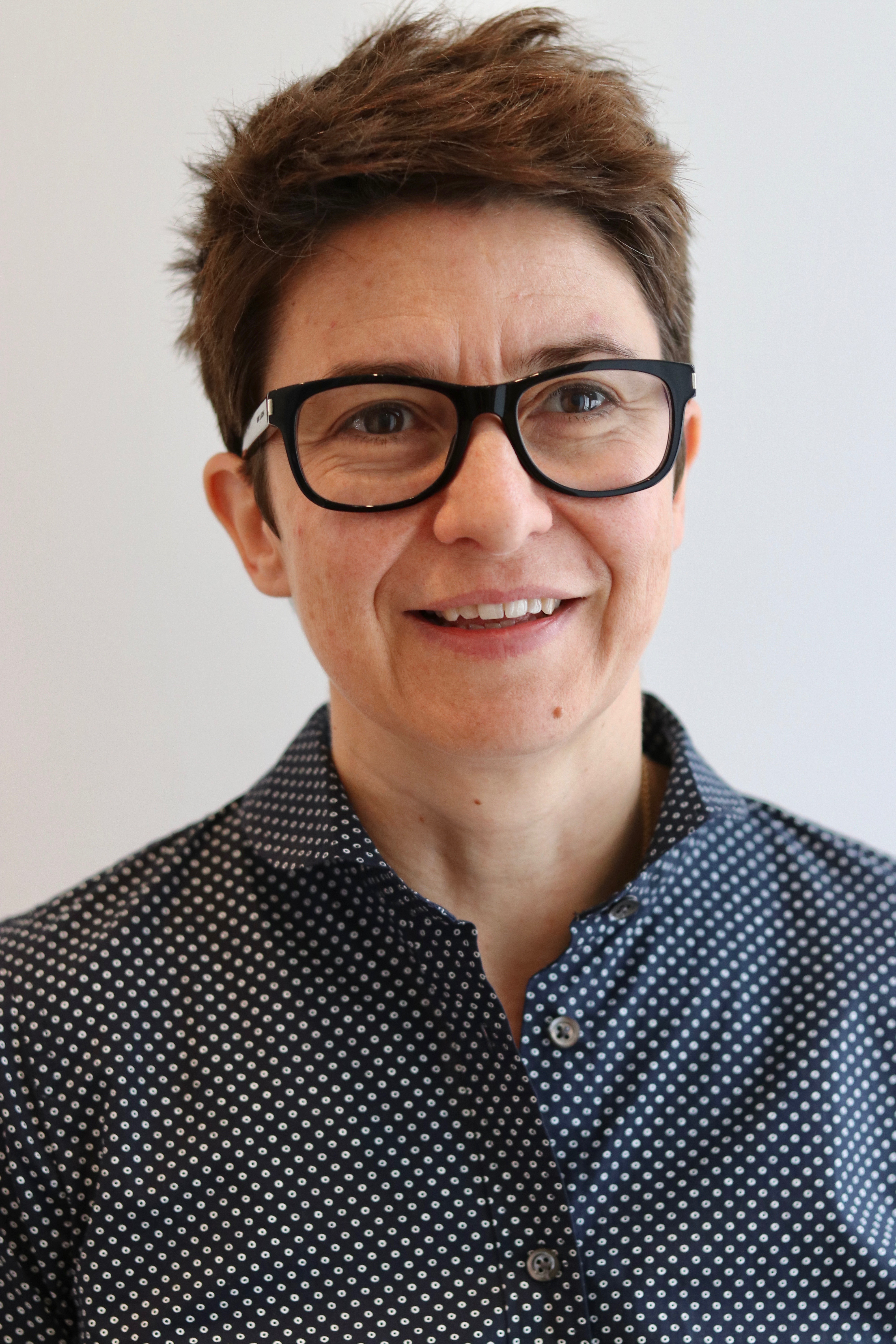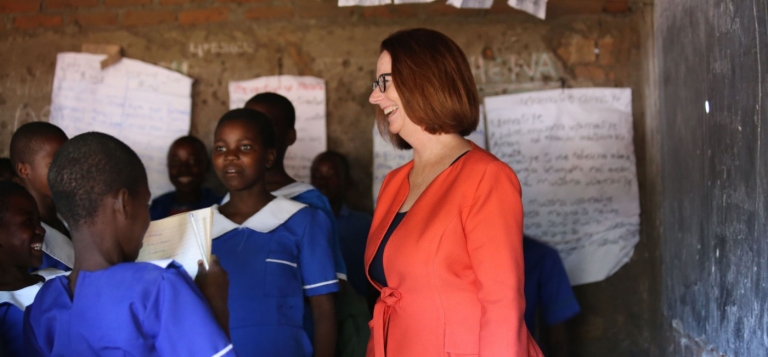
On Monday 16 October, a panel of leading thinkers on addressing sexual harassment and sexual violence at universities spoke at LSE at the ‘Report It. Stop It’ event (which is available as a recorded podcast). EDI at LSE spoke with Dr Tiffany Page – an event speaker and co-founder of The 1752 Group – about universities’ responsibilities to their students, establishing a professional code of conduct for university staff, and the development of the first ever survey of student experiences of staff sexual misconduct in the UK.
EDI: Thank you for your time Tiffany – a very warm welcome to LSE. Could you kindly tell us about the history of The 1752 Group? What are its principal aims and activities, and how did its name come about?
Tiffany Page: I was part of a group of PhD students at Goldsmiths that began organising in 2012 to get the university to address the staff sexual misconduct that was occurring within the institution. We brought reports and formal complaints against several staff members at the institution. Several of us then organised in late 2015 what we believe was the first conference in the UK specifically addressing staff sexual misconduct, entitled ‘Sexual Harassment in Higher Education’.
We were looking for experts to provide analysis and help in this work, and we realised that we had this knowledge through our activism and the actual doing of the work ourselves. There was a lot of amazing work being done on student-to-student harassment, sexual violence and hate crime, but there was continued silence in speaking out about staff sexual misconduct in higher education and recognising that this was a serious issue.
In 2016 we formed The 1752 Group because we recognised this was not about a single institution; instead, it was a national issue and the sector need to understand how abuses of power by staff occur and take action. Our name is in reference to the £1752 of funding we received for that first conference, and how this was seen at the time as being sufficient to address this issue. Since forming, we have been able to have an impact in drawing attention to the ways in which staff sexual misconduct has serious impacts on students, and on other staff, and lobbying for institutions and sector bodies to recognise that they have to address the ways in which staff abuse their positions and that strategies to prevent staff sexual misconduct must be part of wider sexual harassment, sexual violence and hate crime initiatives.
EDI: As noted on The 1752 Group website, research and data on staff-to-student sexual misconduct in the UK are unfortunately very limited. In order to increase understanding of the issue and how it can be addressed effectively, how do you think that the evidence base can be improved?
Tiffany Page: Yes, lack of data is a huge issue, including for organisations like Universities UK (UUK). The majority of the research that has been done is coming out of the US, and more recently out of Australia. We are in need of finding out what the situation is in the UK both in terms of the complexity of experiences of students, and the prevalence. We’ve been very fortunate that the Guardian newspaper quickly recognised this was a serious problem in higher education and have made a strong commitment to addressing staff-student sexual misconduct in the UK. So far much of the research has been through these forms of investigative journalism and the use of freedom of information requests to try and find out what is happening across the sector.
As a research and lobby organisation, we are committed to conducting research projects and we have partnered with the National Union of Students to develop the first ever staff sexual misconduct survey in the UK. We hope the survey will provide insight into the kinds of experiences that students face while in higher education, the impact of staff sexual misconduct, and responses from institutions. The survey will result in a national report published in the spring of 2018. We are also partnering with academics across different institutions on several funded research projects. This includes two Higher Education Funding Council for England (HEFEC) Catalyst Fund projects – one with the University of Portsmouth (led by group co-founder Dr Anna Bull) that examines current university policies and involves focus groups with those who have experienced staff sexual misconduct. The other project is a joint partnership with Professor Vanita Sundaram at the University of York and Professor Alison Phipps at the University of Sussex on a project developing an intersectional approach to training on sexual harassment, violence and hate crime and addressing resistance to culture change. We also have a British Academy/Leverhulme Small Research Grant to examine what can be learned from workplace sexual harassment policies and practices.
EDI: That’s very encouraging to hear – thank you. Clearly, students should feel safe while studying at university and feel confident about the work of their institutions to ensure this. How would you characterise universities’ responsibilities to their students in this regard, especially with respect to preventing and responding to sexual misconduct?
Tiffany Page: For us, it’s critical to situate this as being about equal access to education, which comes under the Equality Act 2010 and under institutional responsibilities. Universities need to safeguard and protect their students, but also ensure that they have equal access to resources. Staff sexual misconduct can lead to students interrupting or dropping out of their studies, or having to avoid any situation where they have to be in the same space as that staff member, which affects their studies and access in multiple ways. These rates need to be known. There is a severe impact on mental health and wellbeing for students. Also, US statistics suggest that a high proportion of trans and non-binary students are impacted by staff sexual misconduct – and specific research is needed on the impact on LGBTQ students, students of colour, people with mental health issues and disabled students. Universities have a responsibility to understand these intersecting issues with regard to staff-to-student sexual misconduct.
EDI: In your experience, what are some of the most effective means of raising awareness and understandings of sexual misconduct among students?
Tiffany Page: We see an enforceable professional code of conduct for university staff as being a crucial step in addressing staff sexual misconduct. For staff in positions of power and responsibility, a code of conduct would make it very clear what kind of behaviours are expected, and students should have access to that code of conduct.
Student unions have played a huge role in running campaigns and awareness with regard to sexual harassment and students knowing their rights with regards to the behaviour of other students. However, a student might not know what’s unacceptable in terms of the behaviour and conduct of staff, and importantly, whether they can report or make a complaint about sexual misconduct. Given the power relations that exist, and that the staff member may be responsible for marking, supervision, or references, students are often not in a position in which to speak out. And when they do, the institution may silence them through discouraging reports, ignoring complaints, allowing retaliation from the staff member, or providing little support for the student to continue their studies. In many cases, the sexual misconduct of staff is known within the department and institution and is witnessed by others. Just like other industries, this knowledge is passed on. And students find out very quickly that it is pointless to report because the institution does not action, or can lead to even more trauma when they do so due to the lack of support provided for students.
I think that campaigns and awareness through induction days and through conversations on campus are really important, because it’s often not done in classrooms. These are teachable moments about duties of care, about ethics, about relationships, about notions of consent and power relationships, and how we want our institutions to care for students and staff and the wider community. These are all things that can also be taught in classrooms, in discussions, through lectures and through campaigns as well. We need to be having these conversations with students.
EDI: Going forward, what would you say are the key priorities for universities with respect to engendering positive cultural change in higher education institutions?
Tiffany Page: There are a number of priorities for the sector, including Universities UK, the Department of Education and ECU (Equality Challenge Unit), particularly with respect to effective guidelines and codes of conduct. For example, the ECU’s Athena SWAN charter mark doesn’t include criteria for assessing institutional policy in relation to sexual harassment and sexual violence and this needs to change.
Universities need to accept that current grievance procedures, particularly around sexual misconduct with an element of power imbalance, are not working for anyone and engage with the process of drafting and trial of new policies. To that end we are working with the UK law firm, McAllister Olivarius, to address sexual misconduct in academia, to draft fair, streamlined processes alongside codes of conduct which can be disseminated nationally. Universities are not alone in this problem and if they come forward together there is a lot of scope for national solutions such as developing a code of conduct, and sharing a team of independent investigators.
We are lobbying for a national office for addressing sexual misconduct, harassment and violence, and for every university to have trained, independent sexual violence officers on campus. Each university needs to develop effective policies governing staff-to-student relationships, have transparent investigation and disciplinary procedures, eliminate the use of non-disclosure agreements, ensure that students are kept informed throughout the process, including the outcome, and most importantly that their wellbeing is prioritised.
EDI: Thank you ever so much for your time – we really appreciate it.
* Dr Tiffany Page is co-founder of The 1752 Group and a lecturer in social inequalities in the Department of Sociology at the University of Cambridge.





